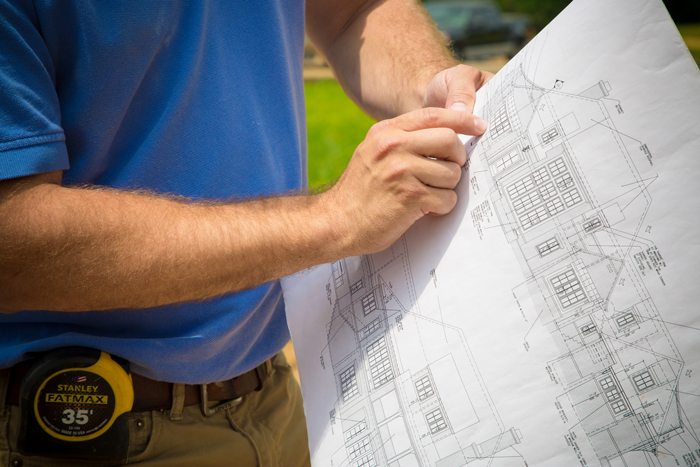Meet the Maestro
 The pro who conducts your project to its finale draws from a deep well of knowledge
The pro who conducts your project to its finale draws from a deep well of knowledge
Some builders call them job supervisors. Others refer to them as project managers, or PMs.
Regardless of the title, these individuals are the unsung heroes of the residential construction business. Many homeowners don’t fully appreciate the skills these pros bring to the table, or how crucial they are to the homeowners’ satisfaction and the builder’s business.
While the builder creates the business processes and sets the quality standards needed to build a custom home, someone has to make sure those processes are followed and those standards achieved. The job demands an experienced professional with the same level of technical and interpersonal skills as a front-line manager in any complex industry.
A good PM is like a blend of engineer and orchestra conductor, with a bit of psychologist thrown in.
On the engineering side, this person needs an intimate knowledge of each element used in the home, how each relates to the others, and how to ensure that everything gets assembled in a way that satisfies the relevant building, mechanical, energy, fire and other codes.
The many thousands of things the PM needs to understand and manage include big issues like how concrete cures, how structures handle wind and snow loads, how hardwood floors respond to humidity swings, and how long to dry the framing before hanging drywall. They also include finicky details like how to frame stairs so the rise and run are correct after the finished flooring has been installed, and the newel post at the landing meets the adjacent treads in the exact way the designer specified.
The PM uses this knowledge to create a plan to complete each task on schedule. And because Murphy is always lurking around construction sites, the PM must also be ready to adjust those tasks when the unexpected happens–whether that’s a five-day rainstorm while the roof is being framed or an incorrect cabinet order that shows up the day before it’s supposed to be installed.
Where the conductor and psychologist earn their keep is in the PM’s ability to orchestrate the wide range of personalities needed to get all this done. Many of these folks are independent business people who also need to keep other builders happy. Consistent success with them requires a leader who can create and maintain a culture of teamwork where everyone takes pride in a great result, and where each trusts the others to do their part.
In fact, the PM’s skills in scheduling, problem solving and communicating can be the difference between your project succeeding or stalling.
That’s why professional builders are very picky about the people they hire for this role: most PMs qualify for the job through years, sometimes decades, of experience over a wide range of projects. It’s also why the best professional builders invest in their PMs’ continuing education, by providing in-house training or by sending them to management-related conferences and seminars.
The bottom line is that this is not a job but a career. The project manager is a seasoned industry professional who commands a good salary and earns every dime of it.
It should be no surprise that the best PMs seek positions at well-run companies that offer the opportunity for professional growth. The company that can attract this caliber of manager passes the benefits on to customers–one of the many advantages of doing business with a professional builder.

